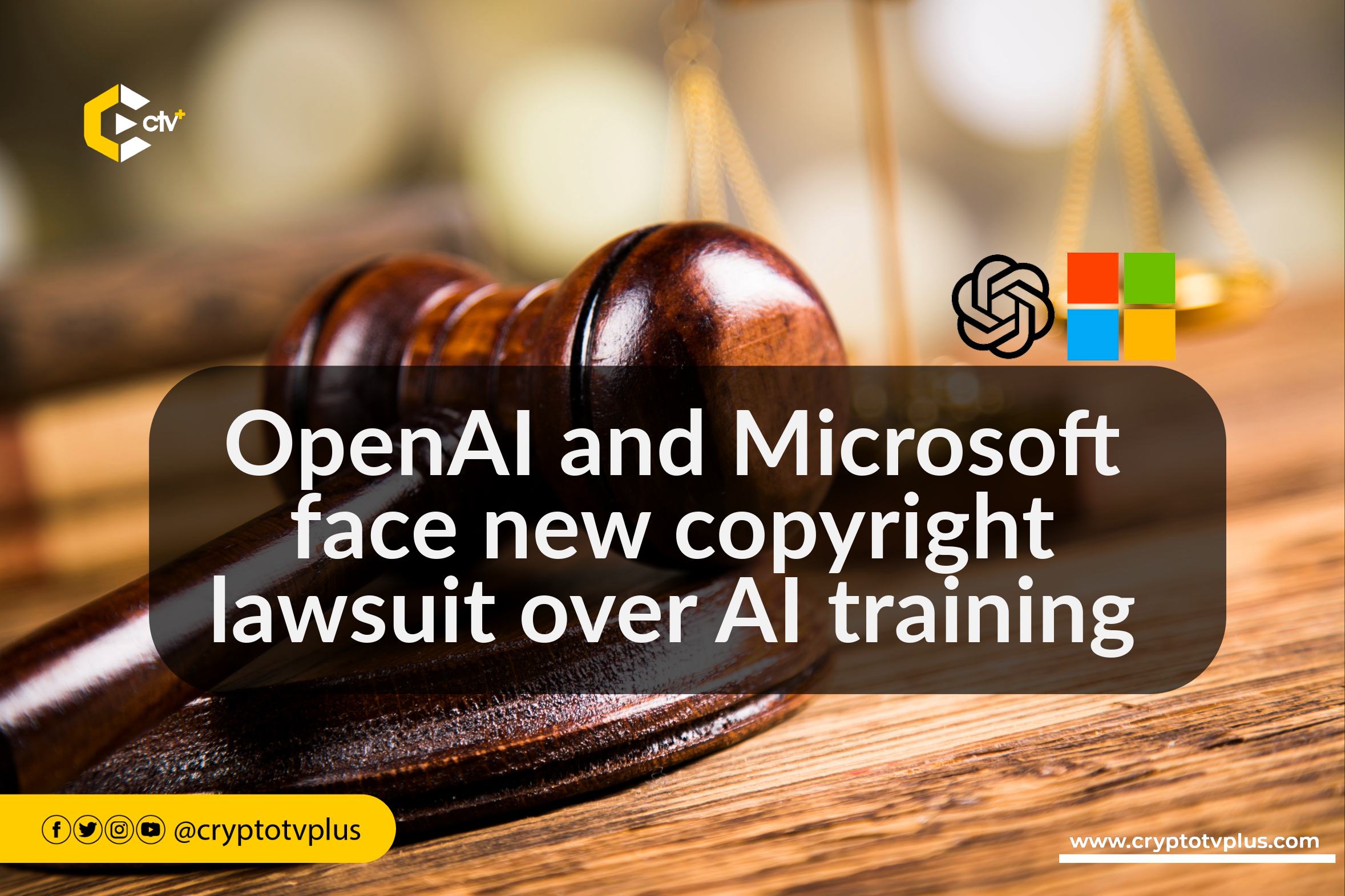News
OpenAI and Microsoft face new copyright lawsuit over AI training

OpenAI and Microsoft are currently embroiled in a legal battle, facing allegations of misusing the works of nonfiction authors to train artificial intelligence (AI) models, including OpenAI’s well-known chatbot, ChatGPT.
The lawsuit, a proposed class action filed in Manhattan federal court and spearheaded by author and Hollywood Reporter editor Julian Sancton, asserts that OpenAI unlawfully copied tens of thousands of nonfiction books without proper permission.
Sancton claims that this unauthorized use was carried out to train large language models capable of generating responses to human text prompts.
During the training process, AI models are typically trained using extensive datasets comprising text from various sources such as books, articles, and websites. These datasets are utilized to teach the model language patterns, context, and information.
The model adjusts its parameters based on patterns observed in the training data, allowing it to generate text that resembles human language. This training approach enables AI models to understand and replicate the structure and style found in finished written works.
While this lawsuit is one of many filed against OpenAI, notable figures such as John Grisham, George R.R. Martin, and Jonathan Franzen have also expressed concerns about the AI company. However, this particular case is unique as it involves both companies as defendants.
Microsoft and OpenAI have formed a long-term partnership with a focus on advancing AI research and making AI technology more accessible to all. Through this collaboration, Microsoft has made a significant multi-year, multi-billion-dollar investment to accelerate AI breakthroughs and ensure that the benefits of AI are widely shared.
The partnership between OpenAI and Microsoft encompasses AI supercomputing, research, and the independent commercialization of advanced AI technologies. Microsoft plans to increase its investments in specialized supercomputing systems to accelerate OpenAI’s groundbreaking AI research.
Regarding the allegations, both OpenAI and Microsoft have refrained from making any statements. Attorney Justin Nelson, representing Pierre Sancton, asserts that OpenAI and Microsoft engage in widespread appropriation of copyrighted works by not compensating nonfiction authors, despite the significant value of their AI platform.
Additionally, the lawsuit claims that OpenAI utilized nonfiction books like “Madhouse at the End of the Earth” by Pierre Sancton to train its GPT language models. The author seeks compensation and requests the court to halt the process.
Read also; NEWSPancakeSwap introduces new voting & governance system: Gauges & veCAKE
























